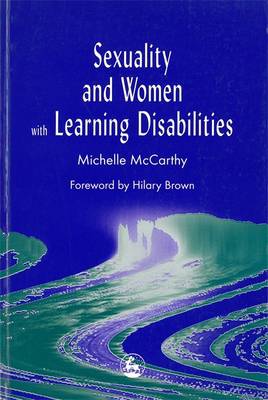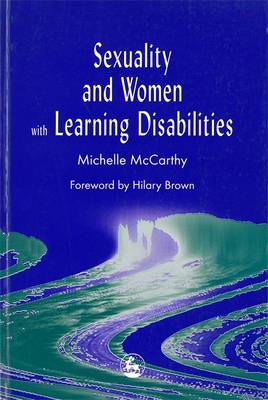
- Retrait gratuit dans votre magasin Club
- 7.000.000 titres dans notre catalogue
- Payer en toute sécurité
- Toujours un magasin près de chez vous
- Retrait gratuit dans votre magasin Club
- 7.000.0000 titres dans notre catalogue
- Payer en toute sécurité
- Toujours un magasin près de chez vous
54,45 €
+ 108 points
Description
Sexuality and Women with Learning Disabilities makes a significant contribution to both feminist and disability literature, because it challenges common assumptions about the sexuality of people with learning disabilities, forces a reconsideration of how this group of people are viewed by those around them and links gender and disability in its analysis.'
-Tizard Learning Disability Review 'By tackling issues that have received little meaningful attention, McCarthy both makes a valuable contribution to the literature and provides a useful practical guide to those wishing to support their clients more effectively.' - Mental Health and Learning Disabilities Care 'The thoroughness and attention to detail with which McCarthy has investigated and written about the sexual lives of a small number of women with mild to moderate learning difficulties is to be commended. Drawing upon interviews with the women who participated in this study, there is explicit detail about the reality of their sexual lives that overall comes across as sad, poignant and often shocking, with a high level of sexual abuse revealed... however, McCarthy has a strong code of ethics and sensitivity and a reflexive honesty about her role and stance as a feminist researcher that removes any possibility or suggestion of prurient voyeurism or exploitation being a part of this research. McCarthy writes as a woman with and about women, allowing their voices about their sexual experiences to be heard through the medium of in-depth interviews. Within the book, the sexual experiences of women with learning disabilities are set in a wider policy and practice framework and discussed in relation to ideologies surrounding learning disability, gender and sexuality in a cultural context. The book ends with a chapter discussing and listing policy and practice recommendations, including suggestions about changes to the law... Overall, this was a convincing and compelling book that deserves serious attention and I would strongly recommend it to anyone with an interest in learning disability issues, including practitioners, carers, relatives, advocates and counsellors.' - CSPRD Newsletter In this study of women with mild and moderate learning disabilities, Michelle McCarthy investigates how these women experience their sexual lives, basing her research on interviews with the women themselves. She argues the importance of informing the work of those responsible at research, practice and policy levels with the voices of people with learning disabilities. In the interviews, women talk openly about what form their sexual activity takes and what it means for them, the circumstances in which it occurs, and the pleasures (or lack thereof) associated with it. These interviews directly shape the policy and practice recommendations the author makes. Michelle McCarthy's findings suggest that women with learning disabilities commonly find themselves engaged in sexual activity which is not to their liking and not of their choosing. A high level of sexual abuse was also reported. The author discusses this in relation to the cultural forces which have influenced Western perceptions of sexuality, feminism and theories and prejudices about learning disabilities. She also studied the impact of institutional and community settings on the sexuality of women with learning disabilities. In Sexuality and Women with Learning Disabilities, McCarthy makes recommendations for policy and practice which will protect this vulnerable group, and advises on education, support and seeking justice for abused women.Spécifications
Parties prenantes
- Auteur(s) :
- Editeur:
Contenu
- Nombre de pages :
- 288
- Langue:
- Anglais
Caractéristiques
- EAN:
- 9781853027307
- Date de parution :
- 01-05-99
- Format:
- Livre broché
- Format numérique:
- Trade paperback (VS)
- Dimensions :
- 157 mm x 233 mm
- Poids :
- 449 g

Les avis
Nous publions uniquement les avis qui respectent les conditions requises. Consultez nos conditions pour les avis.






